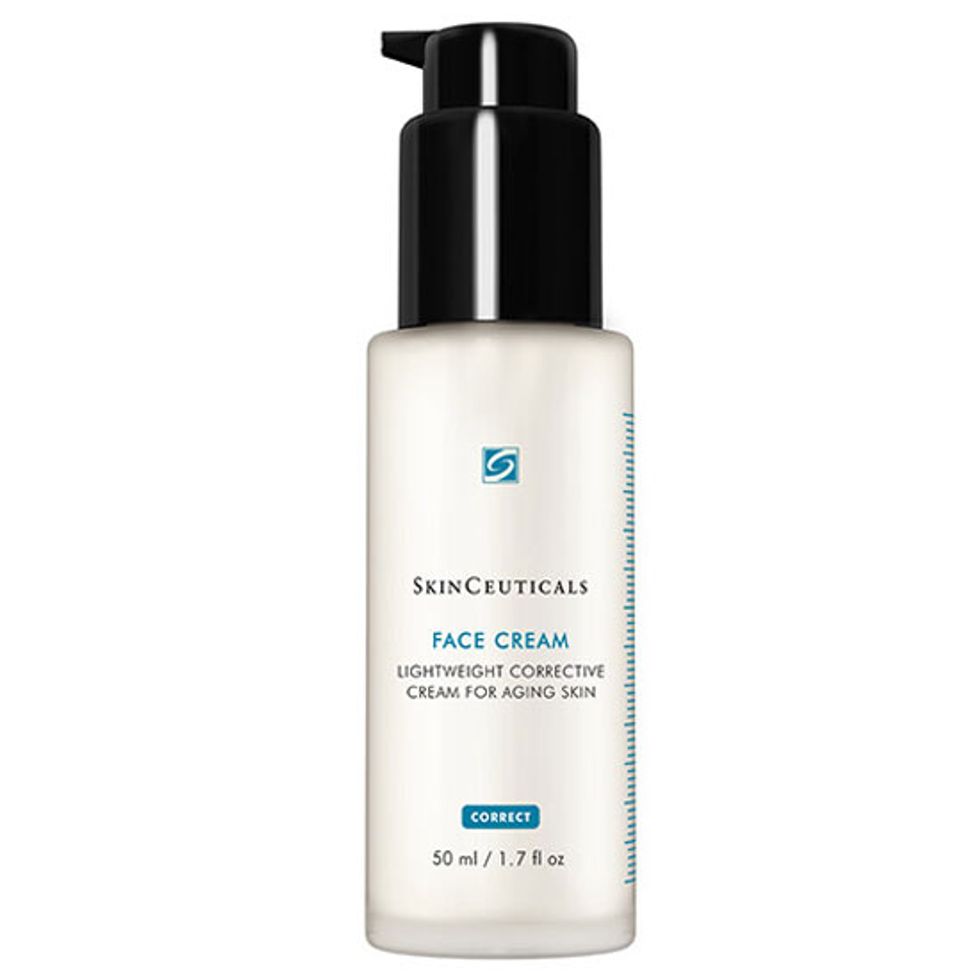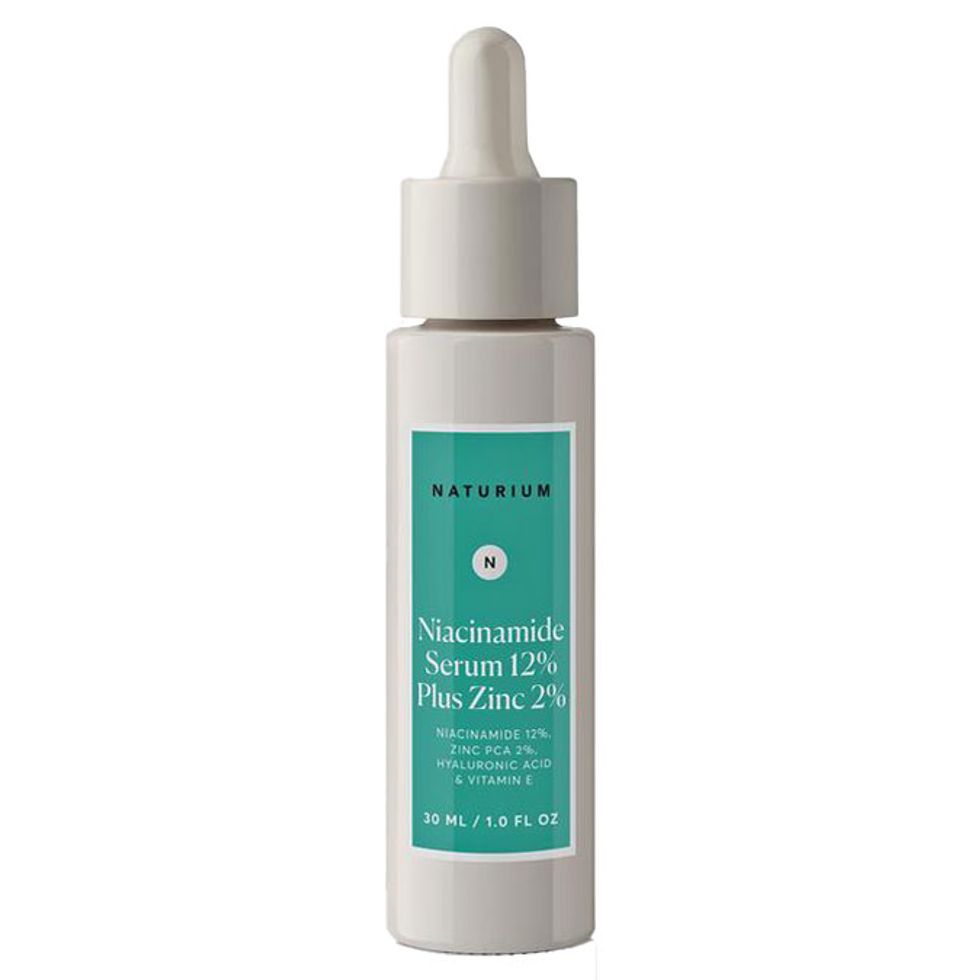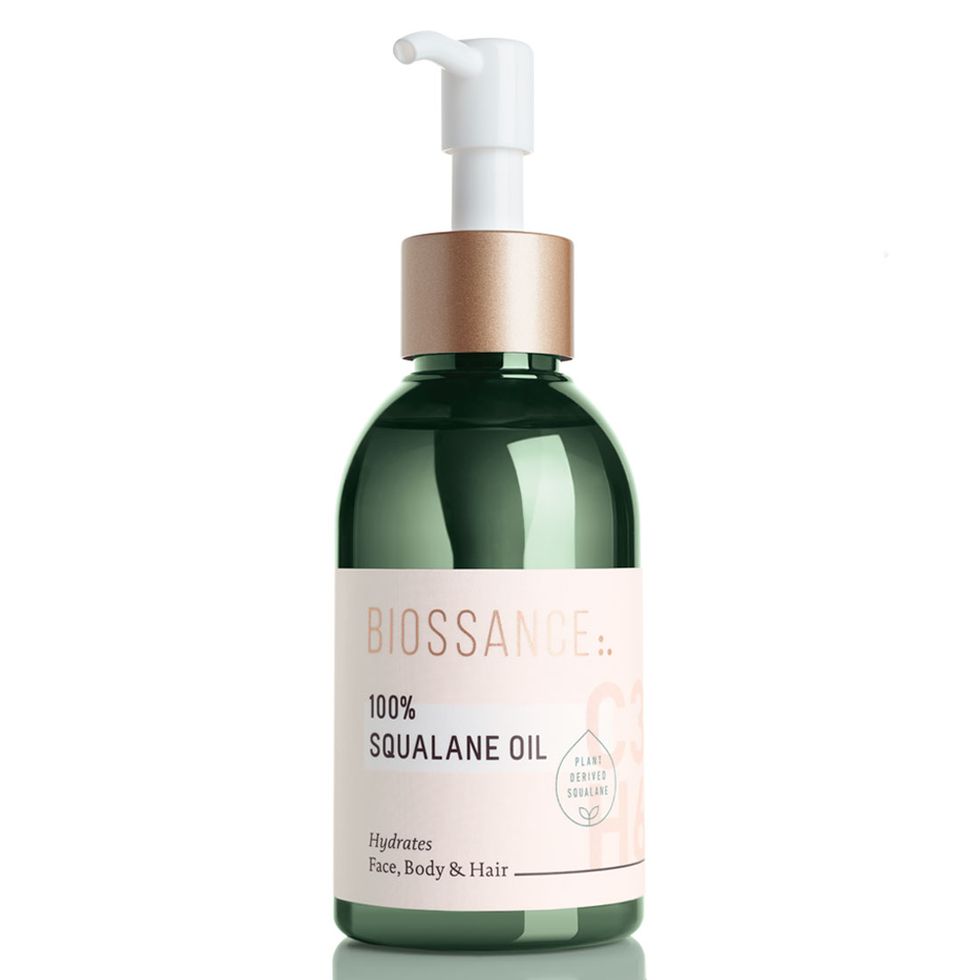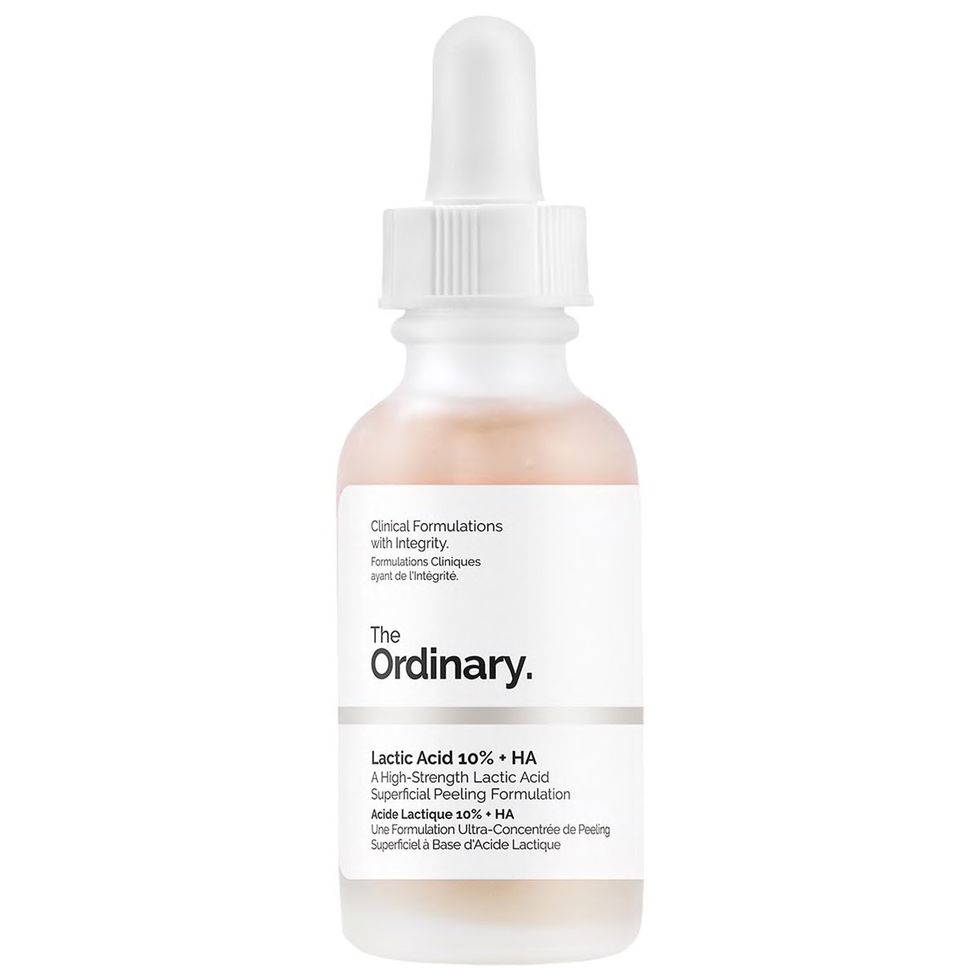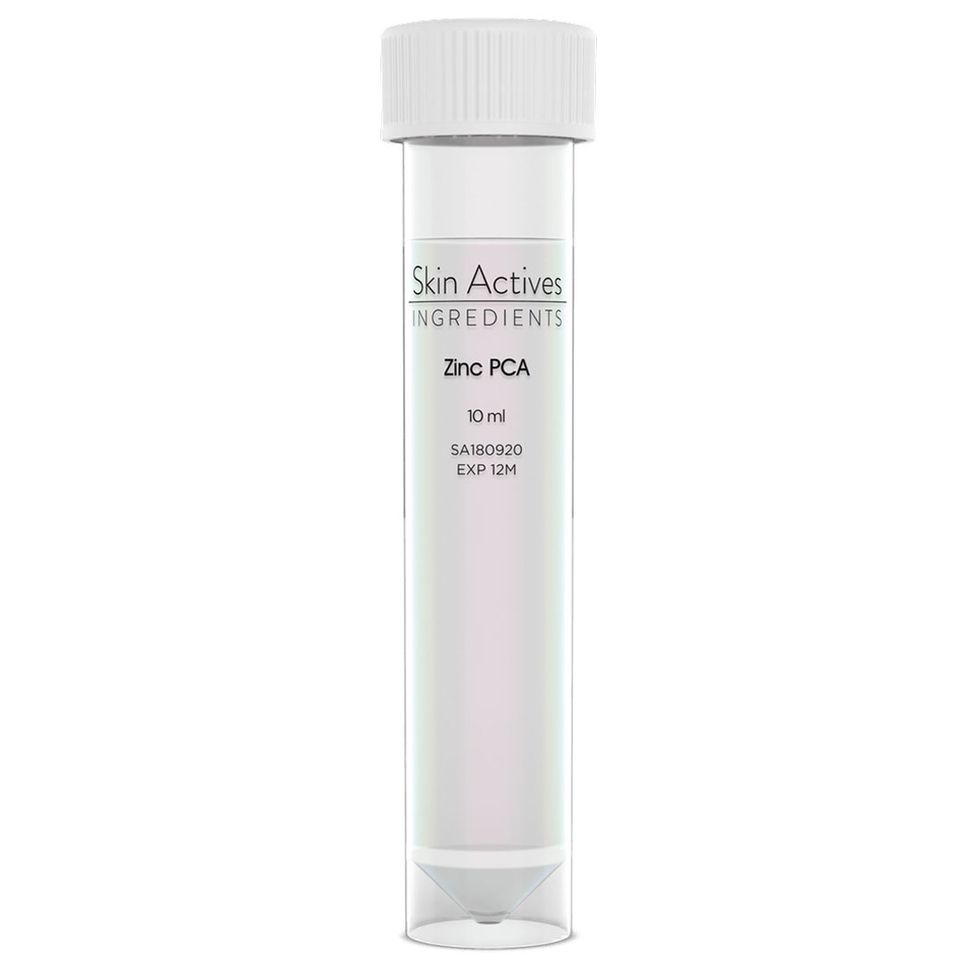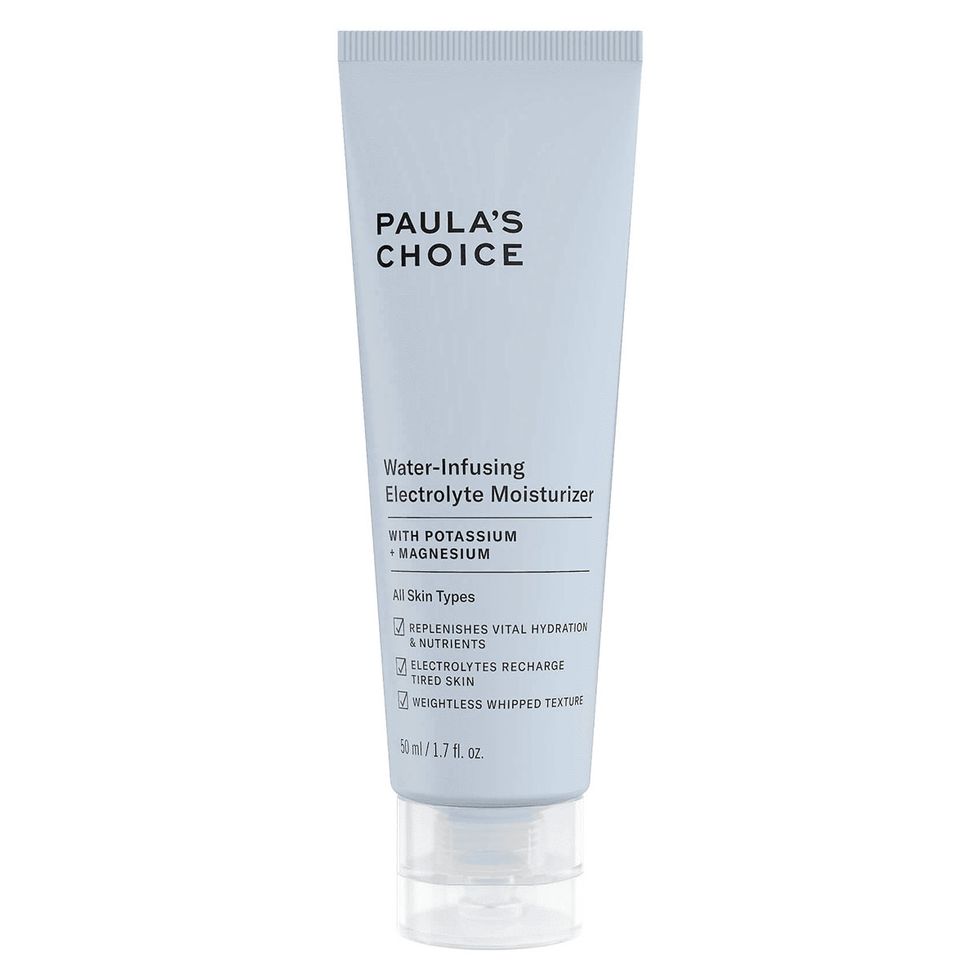Hyaluronic Acid Might Not Be the Most Hydrating Skin-Care Ingredient After All
Experts weigh in on what’s the best option for keeping your skin hydrated, longer.
18 May, 2020
Skin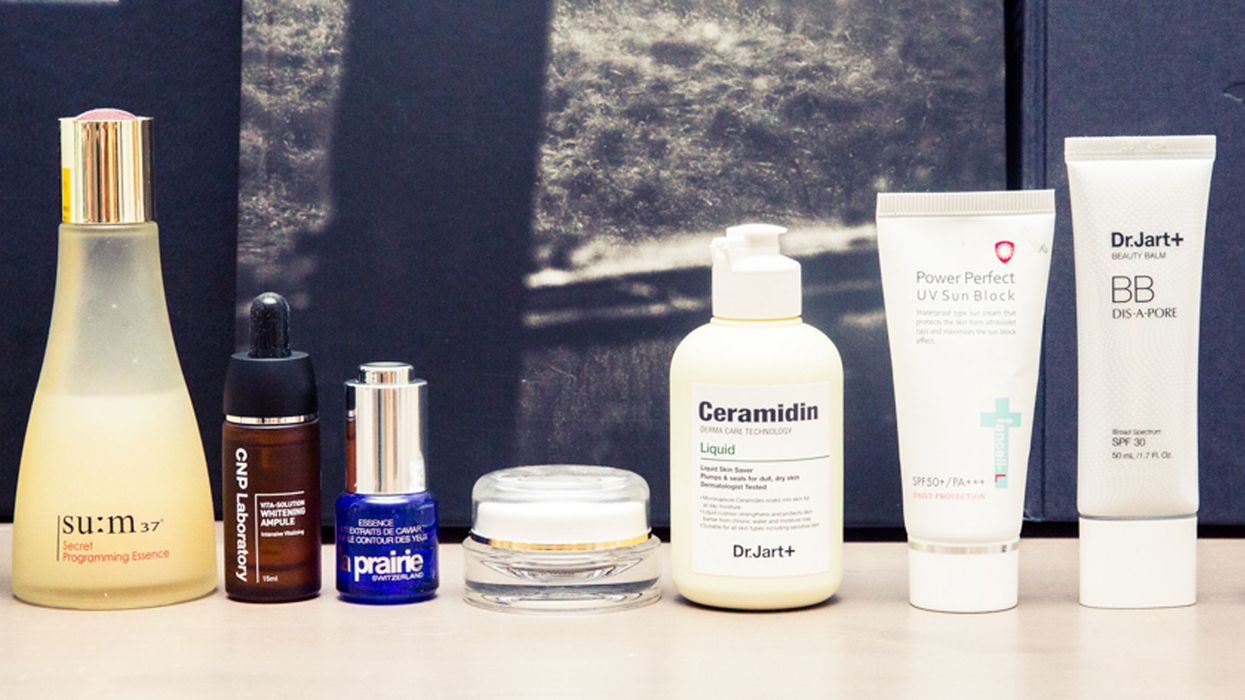
10 November, 2021
Skin-care devotees and novices alike have heard about the hydrating wonders of hyaluronic acid, and since everyone wants the glowiest, most supple skin possible, there’s been a huge increase in the number of HA serums and creams on the market these days. The common refrain is that hyaluronic acid can hold up to a thousand times its weight in water, which in turn allows your skin to feel bouncier, smoother, and more deeply hydrated. But within the world of skin care, if something sounds too good to be true, there’s a good chance that it is. So are there any alternative ingredients that are actually more effective than HA, but are perhaps not as flashy or marketable? In the quest to get the glowiest and most moisturized skin possible, we decided to do some digging.
As a quick refresher, HA is a molecule (technically a glycosaminoglycan, or long linear chain of polysaccharides) that is uniquely adept at binding to and retaining water molecules. It is naturally occurring within the body as a part of the extracellular matrix—molecules that lie between the cells of the epidermis, dermis, and underlying subcutis that provide a constructive framework and affect cellular function. Of all the HA found in the body, over 50 percent is within the skin. But as we age, the levels in our epidermis decrease dramatically (although, for reasons unknown, the dermal levels stay relatively stable). A lack of hyaluronic acid molecules means less water is being held within the skin, which is why we tend to get drier when we’re older. Dry skin also shows more wrinkles and fine lines. So the most logical thing would be to add a topical HA to our current skin-care routine, right?
Unfortunately, the answer to keeping your skin hydrated, and therefore more youthful-looking, isn’t so black-and-white. First and foremost, you have to take care of your body to capitalize on the HA you have naturally. Says dermatologist Dr. Doris Day, “When you are well hydrated from within—drinking water or eating foods with high water content—the HA in your skin will absorb and hold some of that water, storing it for your body’s later needs, and that will help your skin look and feel firmer and more resilient. When you are dehydrated, your hyaluronic acid will give up that water, which can make the skin look and feel saggy.”
Still, there’s a bit of a debate in the scientific and dermatological communities about the validity of HA manufacturers’ claims regarding their products and how they can improve the look and feel of your skin. The main argument against hyaluronic acid as the reigning champion of skin hydration lies in its size. Sure, holding a thousand times your weight in water sounds incredible, but only the very largest HA molecules can do so, and in turn, that makes them incapable of penetrating deep within the skin to rehydrate. Some products also do not reveal what size HA molecules it contains, or it only has a few different sizes, which might not hold that volume of water.
But aside from the effectiveness of various HA products, there is still the issue of whether or not it is the most potent hydrator available over the counter. Dr. Ben Johnson, MD, the founder and formulator of Osmosis Skincare, iterates that HA works more as a skin plumper than a hydrator. “The large size of HA means it does not penetrate into the skin. Therefore, the water it attracts can pull water from the lower layers (in dry climates), or it can pull moisture from the atmosphere and plump (in humid climates). It is not actually adding moisture to the deeper layers.”
Board-certified dermatologist Dr. Shereene Idriss also feels that hyaluronic acid is not the best hydrating option available to consumers. “In my opinion, hyaluronic acid acts like a Band-Aid, helping your skin appear plumper for the short term. Depending on the formulation of hyaluronic acid, there is concern about whether or not it is indeed pro-inflammatory in some cases.” In terms of other humectants (ingredients that can pull water from the environment), she feels that glycerin is a better alternative with less inflammatory risks. Using an emollient, or a skin soother or softener, like a moisturizer enriched with ceramides and squalene, is also more effective long-term, in her opinion.
Another humectant that tends to be overlooked in favor of hyaluronic acid is pyrrolidone carboxylic acid, or PCA, which is a sodium salt. Board-certified dermatologist Dr. Kenneth Howe explains, “PCA is another component of natural moisturizing factor (NMF). Like the other classic NMF components, it is derived from the breakdown of a skin protein called filaggrin. PCA does a nice job of binding water in the skin.” You’ll often see this listed in products as Zinc PCA.
An additional tongue-twister topical that can help rehydrate your skin is phosphatidylcholine, the active ingredient in lecithin, which is a natural humectant and emollient. Says Dr. Johnson, “I know it sounds complicated, but it is what your cell walls are made of, and it is remarkable in its ability to promote barrier health and hydration while also protecting from UVB rays. The more intact the lipid barrier is, the less moisture escapes, which leads to hydration.”
Of course, because these ingredients are not as well-known as hyaluronic acid, you’re not going to have as much of a variety of products to choose from, but consumers’ knowledge of the skin-care industry will likely prompt more developments in the coming years. And if you’re looking for the most hydrating options on the market, all of our experts agree that maintaining a consistent skin-care routine is the first step in keeping your skin healthy and glowy. Stay away from harsh cleansers, and exfoliate a couple of times a week—that will help eliminate dry, dead cells on the surface so that your skin can better absorb your serums and creams. Avoid alcohol in your beauty products, drink lots of water (up to two gallons a day), and if you want to use a hydrating serum, be sure to apply it under your moisturizer for it to work. And of course, use sun protection each and every day.
Don’t forget to shop a few of our favorite hydrating skin-care products.
As a quick refresher, HA is a molecule (technically a glycosaminoglycan, or long linear chain of polysaccharides) that is uniquely adept at binding to and retaining water molecules. It is naturally occurring within the body as a part of the extracellular matrix—molecules that lie between the cells of the epidermis, dermis, and underlying subcutis that provide a constructive framework and affect cellular function. Of all the HA found in the body, over 50 percent is within the skin. But as we age, the levels in our epidermis decrease dramatically (although, for reasons unknown, the dermal levels stay relatively stable). A lack of hyaluronic acid molecules means less water is being held within the skin, which is why we tend to get drier when we’re older. Dry skin also shows more wrinkles and fine lines. So the most logical thing would be to add a topical HA to our current skin-care routine, right?
Unfortunately, the answer to keeping your skin hydrated, and therefore more youthful-looking, isn’t so black-and-white. First and foremost, you have to take care of your body to capitalize on the HA you have naturally. Says dermatologist Dr. Doris Day, “When you are well hydrated from within—drinking water or eating foods with high water content—the HA in your skin will absorb and hold some of that water, storing it for your body’s later needs, and that will help your skin look and feel firmer and more resilient. When you are dehydrated, your hyaluronic acid will give up that water, which can make the skin look and feel saggy.”
Still, there’s a bit of a debate in the scientific and dermatological communities about the validity of HA manufacturers’ claims regarding their products and how they can improve the look and feel of your skin. The main argument against hyaluronic acid as the reigning champion of skin hydration lies in its size. Sure, holding a thousand times your weight in water sounds incredible, but only the very largest HA molecules can do so, and in turn, that makes them incapable of penetrating deep within the skin to rehydrate. Some products also do not reveal what size HA molecules it contains, or it only has a few different sizes, which might not hold that volume of water.
But aside from the effectiveness of various HA products, there is still the issue of whether or not it is the most potent hydrator available over the counter. Dr. Ben Johnson, MD, the founder and formulator of Osmosis Skincare, iterates that HA works more as a skin plumper than a hydrator. “The large size of HA means it does not penetrate into the skin. Therefore, the water it attracts can pull water from the lower layers (in dry climates), or it can pull moisture from the atmosphere and plump (in humid climates). It is not actually adding moisture to the deeper layers.”
Board-certified dermatologist Dr. Shereene Idriss also feels that hyaluronic acid is not the best hydrating option available to consumers. “In my opinion, hyaluronic acid acts like a Band-Aid, helping your skin appear plumper for the short term. Depending on the formulation of hyaluronic acid, there is concern about whether or not it is indeed pro-inflammatory in some cases.” In terms of other humectants (ingredients that can pull water from the environment), she feels that glycerin is a better alternative with less inflammatory risks. Using an emollient, or a skin soother or softener, like a moisturizer enriched with ceramides and squalene, is also more effective long-term, in her opinion.
Another humectant that tends to be overlooked in favor of hyaluronic acid is pyrrolidone carboxylic acid, or PCA, which is a sodium salt. Board-certified dermatologist Dr. Kenneth Howe explains, “PCA is another component of natural moisturizing factor (NMF). Like the other classic NMF components, it is derived from the breakdown of a skin protein called filaggrin. PCA does a nice job of binding water in the skin.” You’ll often see this listed in products as Zinc PCA.
An additional tongue-twister topical that can help rehydrate your skin is phosphatidylcholine, the active ingredient in lecithin, which is a natural humectant and emollient. Says Dr. Johnson, “I know it sounds complicated, but it is what your cell walls are made of, and it is remarkable in its ability to promote barrier health and hydration while also protecting from UVB rays. The more intact the lipid barrier is, the less moisture escapes, which leads to hydration.”
Of course, because these ingredients are not as well-known as hyaluronic acid, you’re not going to have as much of a variety of products to choose from, but consumers’ knowledge of the skin-care industry will likely prompt more developments in the coming years. And if you’re looking for the most hydrating options on the market, all of our experts agree that maintaining a consistent skin-care routine is the first step in keeping your skin healthy and glowy. Stay away from harsh cleansers, and exfoliate a couple of times a week—that will help eliminate dry, dead cells on the surface so that your skin can better absorb your serums and creams. Avoid alcohol in your beauty products, drink lots of water (up to two gallons a day), and if you want to use a hydrating serum, be sure to apply it under your moisturizer for it to work. And of course, use sun protection each and every day.
Don’t forget to shop a few of our favorite hydrating skin-care products.
